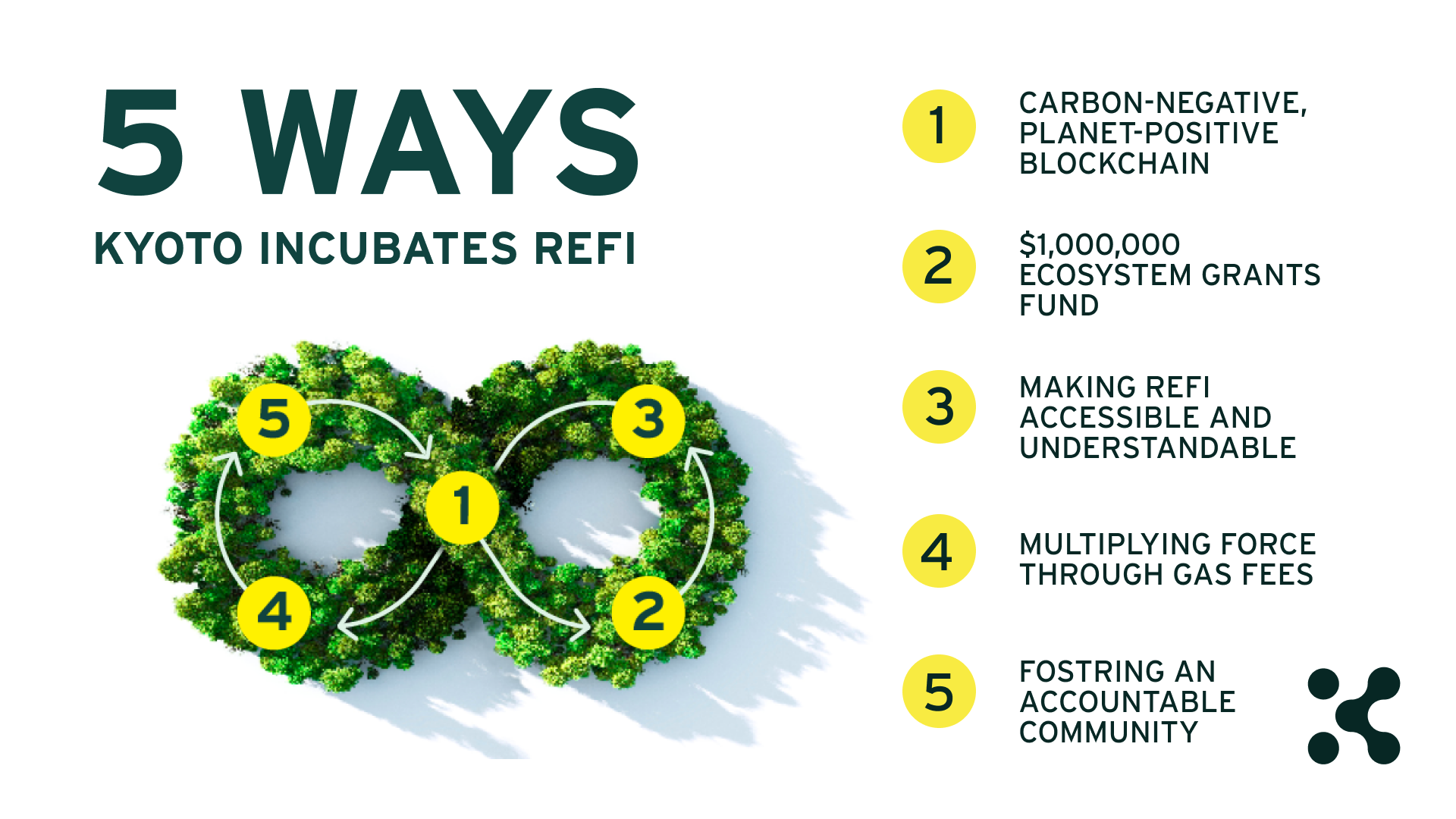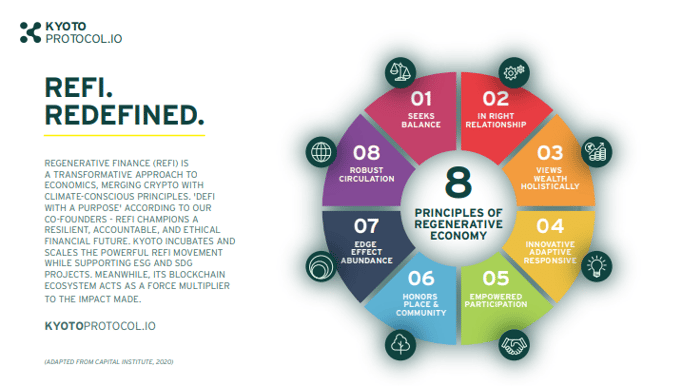Welcome to the age of Regenerative Finance (ReFi)

Regenerative Finance, or ReFi, is a transparent, accessible, and inclusive alternative to traditional financial systems—an emerging concept with the power to reshape the existing financial landscape. Often characterised as the "confluence of crypto and climate," ReFi represents a financial theory that prioritises enhancing and supporting natural and societal systems over short-term exploitation. It aims to integrate care for communities, living ecosystems, and the environment at the foundational level of our economic structure.
The core philosophy of ReFi is to ensure that economic activities are not extractive but are instead designed to benefit the broader community and the environment. It's a holistic approach that intertwines the principles of regenerative economics with the financial realm. This vision starkly contrasts many traditional financial systems, often placing profits above societal and environmental considerations.

The vision and guiding principles of ReFi
Although still in its infancy, ReFi is gaining momentum daily as more communities apply its core practices in initiatives, demonstrating how we can use capital as a flexible, mission-driven tool to create healthy and equitable social and environmental systems. Rooted in the principles of regenerative economics, ReFi aims to forge a more balanced and just economy. A cornerstone of regenerative finance rests upon the concept of "regeneration" – the belief that financial systems can be artfully engineered to amplify and invigorate the foundational natural systems supporting our economy. Furthermore, " resilience " is another aspect of regenerative finance, necessitating investments safeguarding against risks and instabilities. Beyond its guiding principles, regenerative finance is distinguished by its core values, including a steadfast commitment to transparency, accountability, and ethically sound decision-making.
ReFi, an evolution of traditional DeFi services
The decentralised nature of cryptocurrencies provides a fertile ground for ReFi principles to thrive. Cryptocurrencies, underpinned by blockchain technology, offer transparency, reduce intermediaries, and promote peer-to-peer transactions. This decentralised framework aligns seamlessly with ReFi's ethos, emphasising community-driven initiatives and environmental sustainability.
Decentralised Finance (DeFi) refers to financial services that use blockchain technology without traditional intermediaries, such as banks. ReFi is an evolution of DeFi's foundational principles, emphasising sustainable and equitable economic systems underpinned by smart contracts and community-centric decision-making. While many DeFi projects can be short-term and speculative, ReFi projects have a much longer-term vision, focusing on creating lasting positive impacts. ReFi doesn't aim to replace DeFi. Instead, it is designed to enhance it. By integrating regenerative principles into existing DeFi platforms and protocols, the entire ecosystem can move towards a more sustainable and inclusive future.
Using ReFi to address global modern challenges
The emergence of the ReFi movement is timely, addressing contemporary challenges like the climate crisis, inequality, and unsustainable industrial practices. Traditional economic models often lack the incentives for global coordination to address these issues. This is where ReFi shines. By focusing on projects that prioritise sustainability and benefit underserved communities, ReFi has the potential to bridge the financial divide that plagues many regions. ReFi, with its theoretical framework and advanced tools like blockchain, offers solutions to these challenges. It provides a more democratic and inclusive alternative to traditional financial systems, ensuring fair distribution and sustainable prosperity.
ReFi as a call to action
ReFi is not just another trend. It is now a call to action, driven by the need to address the failure of traditional markets to account for the negative impact of carbon emissions and the inefficient allocation of resources. It is also an appeal for policymakers to provide legislative direction and support for Web3 innovation in applications to incentivize positive environmental and social outcomes for all, not just the privileged.
The ReFi movement has established a realm where visionaries, imaginative minds, and champions can reimagine climate action without the constraints of bureaucratic red tape and the politicization all too prevalent within traditional sustainability frameworks.
For more information on the Kyoto Blockchain, explore our Greenpaper. Get the latest updates on our news page and subscribe to our monthly newsletter.
Join our community on Twitter, Discord, LinkedIn, and Telegram.



